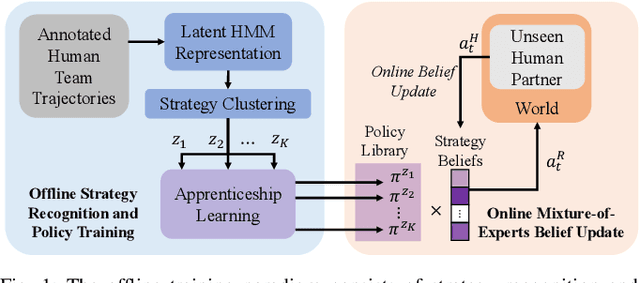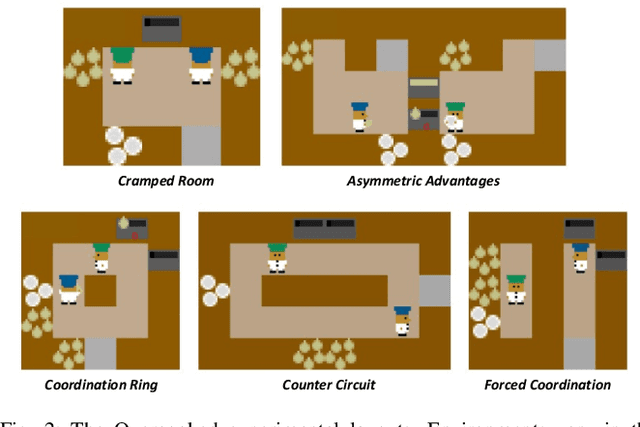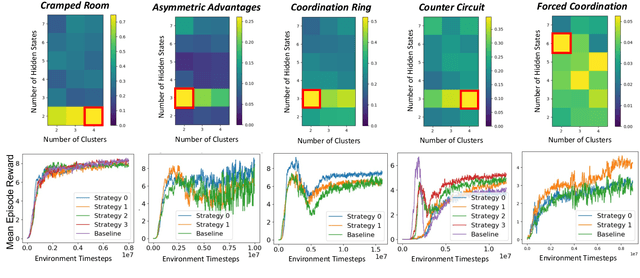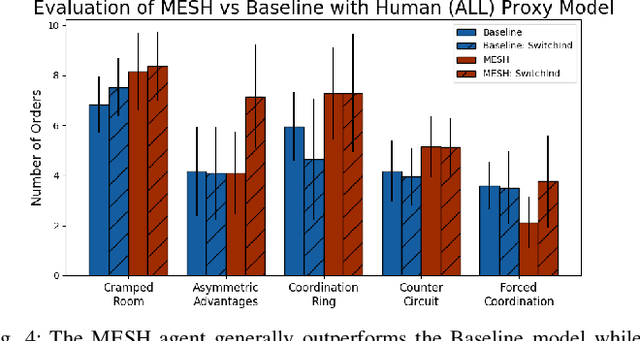Coordination with Humans via Strategy Matching
Paper and Code
Nov 07, 2022



Human and robot partners increasingly need to work together to perform tasks as a team. Robots designed for such collaboration must reason about how their task-completion strategies interplay with the behavior and skills of their human team members as they coordinate on achieving joint goals. Our goal in this work is to develop a computational framework for robot adaptation to human partners in human-robot team collaborations. We first present an algorithm for autonomously recognizing available task-completion strategies by observing human-human teams performing a collaborative task. By transforming team actions into low dimensional representations using hidden Markov models, we can identify strategies without prior knowledge. Robot policies are learned on each of the identified strategies to construct a Mixture-of-Experts model that adapts to the task strategies of unseen human partners. We evaluate our model on a collaborative cooking task using an Overcooked simulator. Results of an online user study with 125 participants demonstrate that our framework improves the task performance and collaborative fluency of human-agent teams, as compared to state of the art reinforcement learning methods.
 Add to Chrome
Add to Chrome Add to Firefox
Add to Firefox Add to Edge
Add to Edge